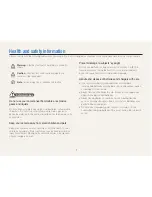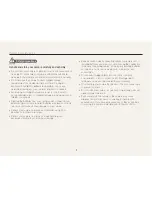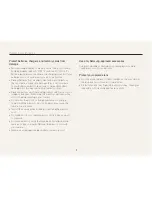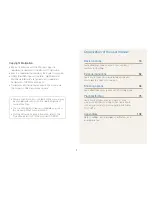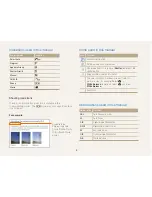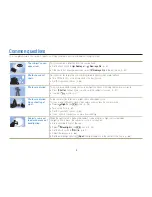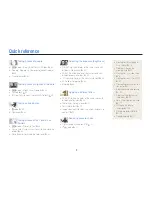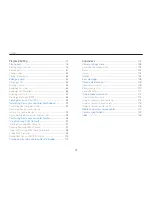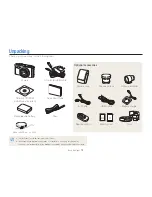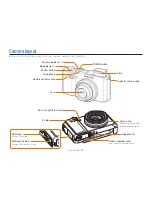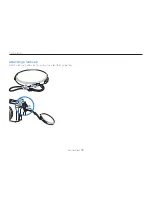
8
Common questions
You can get answers to common questions. Solve problems easily by setting shooting options.
The subject's eyes
appear red.
This is caused by a reflection from the camera flash.
Set the flash option to
t
Red-eye
or
Red-eye Fix
. (p. 52)
If the photo has already been taken, select
t
Red-eye Fix
in the edit menu. (p. 87)
Photos have dust
spots.
Dust particles floating in the air may be captured in photos when using the flash.
Turn off the flash or avoid taking photos in a dusty place.
t
Set ISO sensitivity options. (p.
t
55)
Photos are blurred.
This may be caused by taking photos in low light conditions or holding the camera incorrectly.
Press [
t
Shutter
] halfway down to make sure the subject is focused. (p. 30)
Use the
t
d
mode. (p. 41)
Photos are blurred
when shooting at
night.
As the camera tries to let in more light, the shutter speed slows.
This can make it difficult to steady the camera and may result in camera shake.
Select
t
Night
in the
s
mode. (p. 35)
Turn on the flash. (p.
t
52)
Set ISO sensitivity options. (p.
t
55)
Use a tripod to prevent your camera from shaking.
t
Subjects come out
too dark because of
backlighting.
When the light source is behind the subject or when there is a high contrast between
the light and dark areas, the subject may come out shaded.
Avoid shooting in front of the sun.
t
Select
t
Backlight
in the
s
mode. (p. 35)
Set the flash option to
t
Fill in
. (p. 52)
Adjust the exposure. (p.
t
65)
Set the metering option to
t
Spot
if a bright subject is in the center of the frame. (p. 66)


